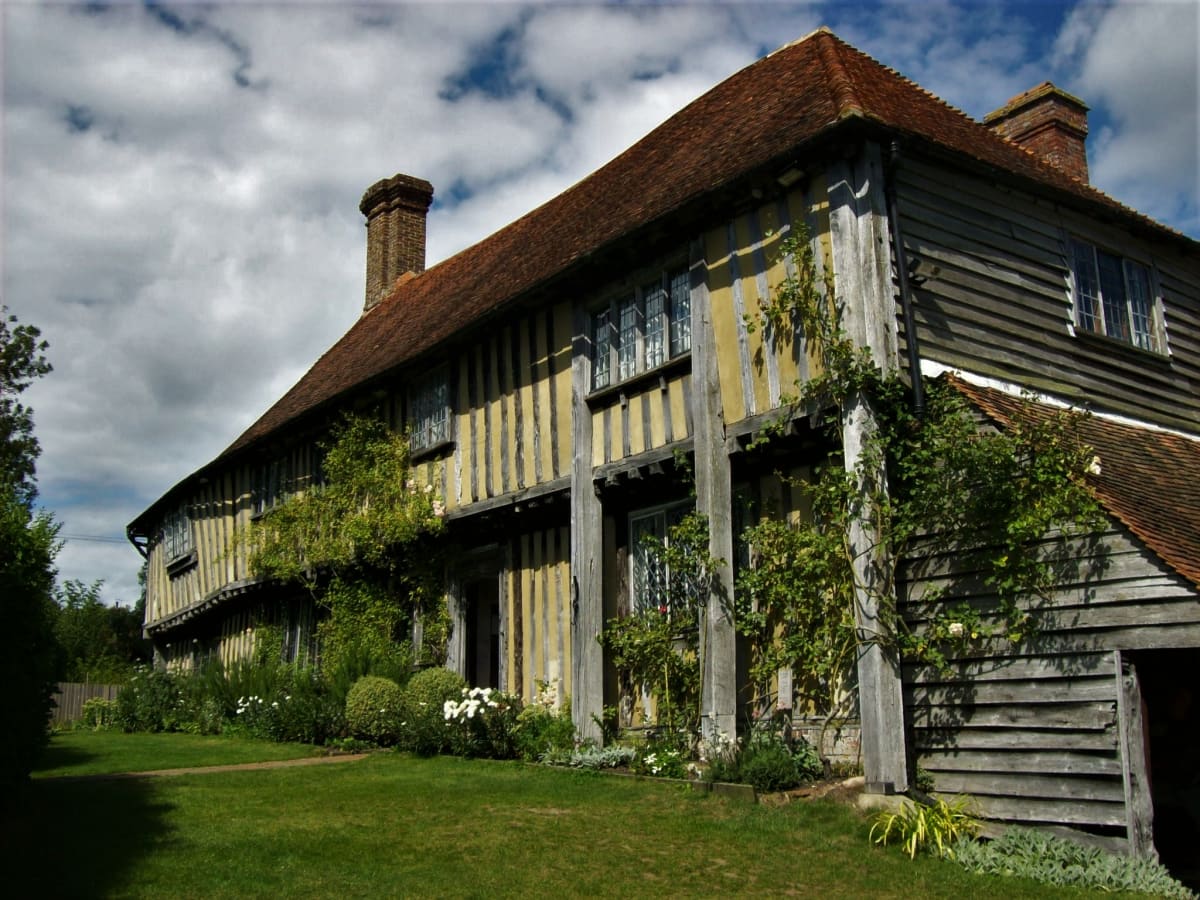Edith ‘Edy” Craig was a trailblazing theatrical director, producer, costumier and actress. She was a founder of the Pioneer Players, a theatrical group dedicated to creating and producing plays of ‘interest and ideas’ dealing with social, political and moral issues, and continued her theatrical work throughout her life. She was also committed to the fight for equality for women (and, as an extension of that, to the cause of women’s suffrage).
Edy lived in London and at the Priest’s House at Smallhythe, in a ménage à trois with the two women she loved, the writer Christopher St John and the artist Claire “Tony” Atwood.
Because Edy eschewed fame and publicity for herself – Katharine Cockin writes that she ‘inadvertently contributed to the greater efficiency of rendering herself hidden from history’ – preferring to focus on her work, her brother, Edward Gordon Craig, now has the larger reputation as a theatrical innovator. However, in 1896 George Bernard Shaw assessed the two: ‘Gordon Craig has made himself the most famous producer in Europe by dint of never producing anything, while Edith Craig remains the most obscure by dint of producing everything’. Due to the work of recent scholars, Edith Craig’s reputation has grown and she is now recognised as one of the key creative forces in British theatre in the early 20th century.
Edy created a shrine to her mother at Smallhythe Place, turning the home Ellen Terry once owned into a museum celebrating her mother’s life (now part of the National Trust).
Christopher St John wrote about the difficulties Edy faced in establishing the Museum at Smallhythe,
‘…it was imagined that the legend of Ellen Terry’s greatness in the English theatre…would suffice to inspire the English people to do their duty by her after her death. …The Memorial as it exists today is still more or less a makeshift for that national memorial we had such high hopes in 1928 of erecting on a firm and permanent basis. We are still honouring Ellen Terry on the cheap.’
In 1929 Edy turned the 17th century thatched barn on the property into a theatre, as a way to keep her mother’s legacy alive. From its inception the Barn Theatre hosted theatrical, artistic and literary luminaries such as John Gielgud, Sybil Thorndike, Lewis Casson, Edith Evans, Clemence Dane, Lawrence Alma Tadema, Sir William Rothenstein, Lady Maud Warrender, Lena Ashwell, Vita Sackville-West and Harold Nicolson, and Harcourt Williams. The Barn Theatre continues to host performances during the summer of each year.
Bibliography:
Auerbach, Nina (1987) Ellen Terry, Player in Her Time. Phoenix House, J. M. Dent & Sons Ltd.
Cockin, K. (1998) Edith Craig: Dramatic Lives. Cassell.
Cockin, K. (2017) Edith Craig and the Theatres of Art. Bloomsbury.
St John, C. (1931) (ed.) Ellen Terry and George Bernard Shaw: A Correspondence. Max Reinhardt.
St John, C. (1933) (ed.) Ellen Terry’s Memoirs. Victor Gollancz Ltd.
Smallhythe Suffragettes: video created by Carla Danella for the National Trust at Smallhythe.
